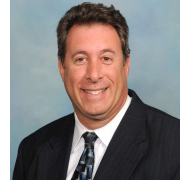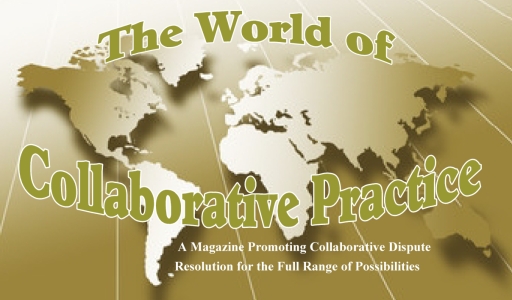
Tags
Related Posts
Share This
Be Careful About How You Choose to Divorce: Part 1
When two people marry, the feeling is one of pleasant thoughts and a lifetime of hope for the future….as it rightfully should be. A simple marriage contract is signed by both parties without ever a real thought about the possibility of divorcing. Statistically speaking, divorce occurs in 50% of first marriages and 60% of second marriages.1 What is even more unfortunate is that the emotional, financial, and legal process of divorce that the (once in love) couple can find themselves in, is anything but pleasant or hopeful. “On its best day the family law system in this country is ‘inefficient’; on its average day it is ‘uncaring’; and on its worst day is ‘totally corrupt.”1 Often, the best decision a judge can make is one that neither party likes. As a licensed Financial Advisor with a specialty as a Certified Divorce Financial Analyst, I have seen how adversarial divorce affects, and oftentimes destroys the entire family. The results can be emotionally crushing to children and spouses, with the added result of the loss of needed financial assets and additional soaring legal costs. In the worst cases, the couple keeps coming back to court, even after the divorce, for many years to come trying to correct the ‘injustice’ of the system. For many this revolving litigation is a life changing experience that could only be described as ‘surreal.’ The question begging to be asked is why then would anyone purposefully choose this way to divorce knowing that the ultimate result could devastate them and oftentimes number their children among the casualties?
But what if there was another way? What if there was a different system that could be used by divorcing couples? A system that not only values honesty, openness, and respect, but actually achieves it: a process that provides a much greater chance of emotional success, less financial loss, and a renewed hope for the stability of the children. Well there is…..its called “Collaborative Divorce.”
In a Collaborative divorce, each participant signs a binding contract (the Collaborative Participation Agreement) that requires all participants to treat each other with honesty and respect, and which prevents the professionals working in the process from ever testifying in court. This does two important things: First, any incentive for an attorney to torpedo a settlement is removed, since they will not earn any additional money if the case goes to trial. Second, signing the contract creates a serious financial disincentive for either party to abandon the process. The Collaborative Agreement creates a new environment for the divorce. Since the only way to resolve the issues is by the agreement of the parties, the environment rewards honesty, openness, respect, creativity, courtesy, and cooperation. Rather than destroying a couple’s parenting relationship, the Collaborative Divorce provides an opportunity to rebuild the trust and communication skills the couple will need post-divorce. But signing a contract alone is not enough. In order to make the process successful, the couple will need a team of professionals who are trained to help them with the problems inherent in divorce: Financial Specialist, Mental Health professionals as Child Specialists and Divorce Coaches and Lawyers.
In a Collaborative Divorce, the clients use specifically trained professionals, whose sole job is to settle the case without going to court. Think about building a house. The General Contractor, while potentially capable of doing the plumbing or electrical work, will typically hire a licensed plumber and electrician. Why? Well, the plumber and electrician are experts in their fields and will do their job faster and cheaper because they are experts. The same is true with Collaborative Practice. Each professional brings a different and much needed skill set to the negotiating table.
The Collaborative Process starts with the clients’ needs, and the legal aspect of divorce is only one part of addressing those needs. Financial Specialists are needed not only to craft a fair distribution of assets to both partners, but also to plan a distribution of financial resources in a way that maximizes financial security and opportunity for each party and their children currently, and in years to come. Mental Health professionals usually play one of two equally important roles: Child Specialist and Divorce Coach. The Child Specialist gives the children a voice, and gives needed suggestions for creating a successful post-divorce parenting partnership. The Divorce Coach acts much like a football or basketball coach, helping a couple to focus on improving communication around parenting concerns, and to improve the emotional climate within the family. These mental health professionals provide needed support during the transition to two households, and supply the best chance of minimizing any long term negative effects from the separation and ultimate divorce.
The Collaborative process is a better way to divorce. It is faster because a typical contested divorce generally takes at least eighteen (18) months to resolve. The Collaborative process averages 6-9 months – half as long.2 Also, recent data shows that 90% of all litigated cases will return to court, while 90% of Collaborative cases never return to court.3 It is cheaper for the parties because the typical litigated divorce in Florida where I practice, costs approximately $30,000 (total for both sides, without having to go to trial. If trial occurs, the costs increase significantly)), while Collaborative Divorces, even with Financial Specialists, Child Specialists, and Divorce Coaches, tend to average $15,000–half as much (depending on the complexities of the particular case). Additionally, these numbers do not take into account the cost of repeated returns to court for a typical litigated case. Let us not forget that these numbers do not take into consideration the emotional savings that are achieved in utilizing a process that creates and maintains a safe environment of respect, honesty and dignity.
In conclusion, the Collaborative process acknowledges that divorce is not simply a legal problem, but is rather a family problem with legal, financial and emotional aspects. The process engages trained lawyers, financial planners and mental health professionals to work together as a team to serve the diverse needs of the clients. Collaborative Practice is not right for everyone, but for most divorcing couples it offers a faster, less expensive, more satisfying way to end their marriage respectfully, and take their first steps into a positive future for themselves and their children.
Part 2 will be published as part of our next issue. Follow us on Facebook or Twitter or Join our email list to hear when it’s available….and other news.
*************
1 Alec Baldwin; Book Expo of America, 2008; Macmillan Publishing; Discussing his divorce and book “A Promise to Ourselves.”
http://us.macmillan.com/BookCustomPage.aspx?isbn=9780312363369&m_type=2&m_contentid=275364#video
2 Census Bureau, National Center for Health Statistics, 2002-2005; U.S. National Center of Health Statistics, National Vital Statistics Report (NVSR), Births, Marriages, Divorces, and Deaths; Provisional Data for 2009, Vol. 58,No. 25, August 2010, and prior reports
3 The Wall Street Journal, June 6, 2008, “Separate Peace,” by Stepahnie Coontz
4 Associated Press, 12/18/2007, “More Couples Seeking Kinder, Gentler Divorces.”









Alan,
You are welcome. This is a valuable discussion. I have often thought that the only reason that divorce happens in the court system is that English law originally treated women and children as chattel. If Collaborative processes can help more people to understand that divorce is a restructuring of families and not the destruction of families, then we will have accomplished a greater good for peace in the family.
Thank you, Gloria, for publishing my article. I would also like your readers to know that, as Co-Director of Florida Alimony Reform (www.floridaalimonyreform.com), I am in the throws of trying to help change the laws with regard to alimony in the State of Florida. If the current law is able to ultimately be changed closer to what our proposed bill offers, then I believe many more divorce cases will be able to be handled in a collaborative manner because we will more fully understand the duration and amounts of potential alimony if those cases were to go to court. Thank you again for providing such a needed publication.
Sincerely,
Alan Frisher, CDFA
Sage Financial Management
Sage Divorce Planning
321-242-7526